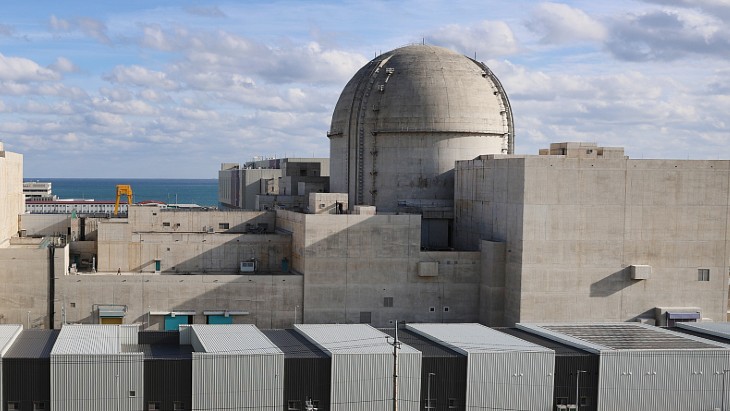Japan's nine nuclear power utilities have rejected calls from some of their shareholders to reduce or even eliminate the use of nuclear energy. Tokyo Electric Power Co's (Tepco's) shareholders approved a ¥1 trillion ($12.5 billion) injection of state funds which effectively nationalizes the company.
The nine utilities each held general shareholders' meetings on 27 June in the respective regions. They all faced numerous questions from their shareholders about their position on phasing out the use of nuclear power plants as well as concerns about the resumption of operations of their reactors. Some shareholders also called for plans for new reactors to be dropped. However, all shareholder proposals were voted down at each of the meetings, the Asahi Shimbun.
Some 4500 shareholders attended Tepco's meeting in a gymnasium in Tokyo, which lasted about five-and-a-half hours. During the meeting, shareholders voted against a proposal for the company to permanently shut down its seven-unit Kashiwazaki Kariwa plant in Niigata prefecture, replacing them with advanced gas-turbine generators. However, the company is relying on the restart of those reactors to help improve its profitability.
Following government approval of an amendment to Tepco's ten-year special business plan in May, the company's shareholders approved a transaction under which the government will provide Tepco with ¥1 trillion ($12.5 billion) in state funds in return for a majority stake in the company. Having more than half of Tepco's voting rights will enable the government to push through reforms at the company. The transaction brings the total amount of public funds provided to Tepco to some ¥3.5 trillion ($43.8 billion). The move could avoid the collapse of the utility, which is struggling to meet massive compensation and clean-up costs following the Fukushima accident last year.
Tokyo vice governor Naoki Inose told the company's meeting, "Public confidence in Tepco has been damaged," Reuters reported. He added, "What is needed from now is an awareness on the part of Tepco that it must completely reform itself through transparency." Tokyo's city government holds a 2.7% stake in Tepco.
Following the meeting, Tepco's board formalised the appointment of a new government-approved chairman and president. Naomi Hirose, currently a managing director of the company and deputy general manager of its Fukushima response division has been appointed as the company's new president, replacing Toshio Nishizawa. Kazuhiko Shimokoube, former head of the Nuclear Damage Liability Facilitation Fund's steering committee, takes over from Tsunehisa Katsumata as company chairman.
Tepco's losses have been put at ¥781.6 billion ($9.8 billion) for financial year 2012. About half of this stems from the cost of compensation and cleanup; the other half is from the higher cost of generation in Japan's shaken power market. Assuming that substantial electricity price hikes and reactor restarts are approved, Tepco anticipates returning to profitability in financial year 2013/14.
Osaka opposition
Meanwhile, Kansai Electric Power Co (Kepco) held its shareholder meeting in Osaka where the city's mayor, Toru Hashimoto, urged Kepco to change its management strategy to one based on the assumption that the company does not operate any nuclear power plants, according to Reuters. He told the Kepco meeting: "We are facing an epochal shift in the energy supply framework. I would like executives to keep that in mind and aim to build a new energy supply system." Osaka's city government holds a 9.5% stake in Kepco.
However, Kepco shareholders voted against motions calling for the company to either end or reduce its use of nuclear energy. A total of 28 proposals had been put forward calling for the company to shift from nuclear power and fossil fuels to renewable energy sources. A motion backed by the mayors of Osaka, Kobe and Kyoto would have obliged Kepco to permanently shut down all eleven of its reactors.
Company executives, however, warned that not restarting Kepco's reactors would add some ¥900 billion ($11.3 billion) in annual fuel costs. Kepco president Makoto Yagi said that nuclear power should continue to serve a key role in the country's energy supply and stated that the company needs to restart some of its reactors to stay afloat, the Associated Press reported.
Kansai vice president Shigeki Iwane told the meeting, "We are planning on streamlining, but unless we can get a substantial number of reactors restarted, sustainable and continuous operations are difficult."
Kepco is in the process of restarting operation of units 3 and 4 of its Ohi plant in Fukui prefecture following recent approval from prime minister Yoshihiko Noda. The 1180 MWe pressurized water reactors have been off-line since entering scheduled periodic inspection outages in March 2011 and July 2011, respectively. They will be the first two Japanese units to come back online. Unit 3 is set to restart on 1 July, while unit 4 will return to operation in by the end of July.
Without its nuclear plants, Japan is having to turn to other sources of power. According to figures from the Japanese Atomic Industry Forum, the country faces a 12% shortage of electricity in summer 2012. Meanwhile additional fossil fuel imports are costing it about $40 billion, or $333 per person, per year while its carbon emissions have risen some 14% above 1990 levels.
Researched and written
by World Nuclear News




_72306.jpg)


_49562.jpg)





